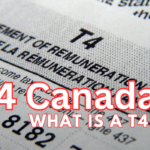Get all the latest updates on the DWP to Stop Most PIP Payments Within 2 Years: Check List, New Payments, And Replacement Here. The Department for Work and Pensions plans to stop most new claims for Personal Independence Payment within the next two years.
DWP to Stop Most PIP Payments Within 2 Years
According to recent statistics, many people now receive short-term awards. When these awards end, they must submit a new application if they want to continue receiving support. The DWP has also provided warnings and updates to PIP claimants about potential changes and the importance of reporting changes in their condition.
The DWP aims to reduce the rising costs of PIP and has proposed significant changes. These changes could replace cash payments with vouchers for equipment and treatment. A consultation on these reforms, proposed by the Conservatives, will conclude on 22 July.
| Important Links |
DWP to Stop Most PIP Payments Checklist
The new Labour Government, led by Sir Keir Starmer, will review these proposals. Labour has no said what it will do with PIP yet, but it wants to help more disabled people and those with health conditions get jobs. Labour also promises to let disabled people start working without worrying about losing their benefits right away if the job does not work out. Right now, short-term PIP awards last between nine months and two years. When these awards end, the payments stop unless a new claim is made.

Currently, short-term PIP awards last between nine months and two years. When these awards end, benefit payments stop unless a new claim is made. This is a critical point where the proposed vouchers might be introduced instead of cash payments.
New PIP Payments Within 2 Years
A Green Paper on PIP reform is seeking input on which extra expenses incurred by disabled people should be addressed by any new scheme. The DWP’s latest reports show that in the quarter ending April 30, 2024, 79% of PIP awards were short-term, up to two years, 12% were long-term, more than two years, and 8% were ongoing. Short-term awards are usually given when someone’s health is likely to improve or if the person has a terminal illness.
Short-term awards are usually given when someone’s health is likely to improve or in cases where a claimant has a terminal illness. Over 3.5 million people are claiming PIP in England, Wales, and Scotland. PIP is not based on income or savings, so anyone can claim it regardless of how much money they have. However, according to the DWP, only 14% of PIP recipients are working. The rest rely solely on their benefits to cover living costs.
PIP Payment Replacement
The DWP has highlighted the top five conditions for which people claim PIP, and claimants are warned that they could face up to eight months in prison for not reporting changes in their condition. The DWP decides the type of awards and review periods based on each person’s needs and how likely those needs are to change.
This includes considering planned treatments or therapies. Fixed-length awards can range from nine months to ten years, with two years or less considered short-term. A guidance change in 2019 now generally awards ongoing benefits to claimants whose review would occur when they are of State Pension age.
|
Important Links |
All We Know
The proposed reforms aim to address rising costs and improve the support system. However, these changes could significantly impact new claims and end-of-award reviews. The Institute for Fiscal Studies thinks that any PIP cuts will probably focus on new claims and end-of-award reviews, rather than quickly reassessing all existing claims. In Scotland, PIP is being replaced by a new benefit called Adult Disability Payment.
In Scotland, PIP is being replaced by a new benefit called Adult Disability Payment. Social Security Scotland began transferring its PIP claimants to ADP in September 2022, with over 218,800 people expected to switch by the end of 2025. In Wales, PIP is still managed by the UK Government, and in Northern Ireland, it is overseen by the Department for Communities.
During the general election campaign, the Conservatives warned that Labour would impose a ‘retirement tax’ on pensioners if they came to power. The Conservatives had already frozen income tax thresholds, including the personal allowance, until at least 2027-28. This freeze has pushed an extra 2.5 million pensioners into the tax net during the party’s 14 years in power.







